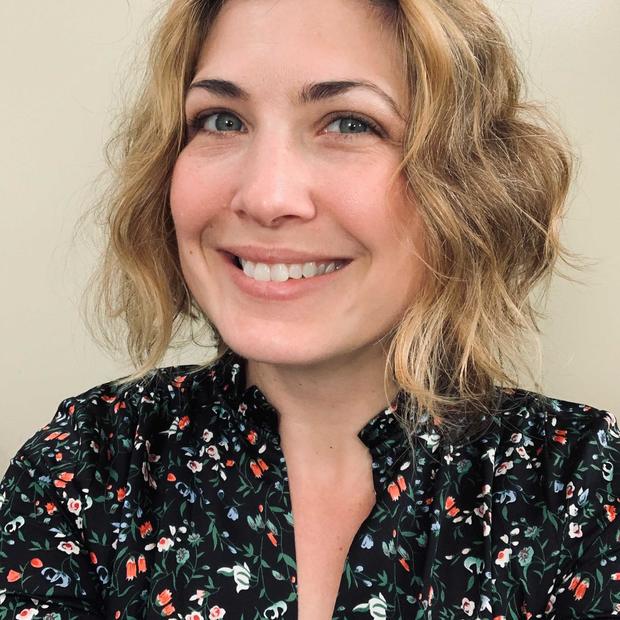This Yakama Nation artist uses digital art to express and preserve her cultural heritage. Kruger’s work often appears under the banner Lucky Arrow Creations, a nod to her appreciation for forward momentum. By fusing technology and traditional artistry, she designs custom jewelry, which she brings into being with software and laser cutters. The combination of her deep connection to Yakama culture and digital art techniques allow her to represent and revitalize the ancestral traditions she holds dear.
This video is part of our “Made There” series about local artisans. View more videos from Seasons 1 and 2.
“I was trying to seek designs that connected with me and the way that I was brought up, but I couldn’t find anything,” Kruger explains. “I wanted something with our cultural background. I wanted to see that. I wanted to see people wearing that.”
Born and raised on the Yakama Reservation, Kruger has been inspired by the history, stories, and traditions of her culture. She has fond childhood memories of her mother employing all manner of crafts – sewing, crochet, weaving, beading – to create clothing, bags and shoes.
“Growing up, my mom was always creating things for me – the outfits that we have to wear to do certain activities at the longhouse or maybe at the powwow, which is a social gathering, and she would make the outfits or the regalia,” Kruger says. “She would sew them all for me, she would build moccasins for me and she would make the bags that I use to go gather the food. And you know, all of that is, like, original artistry that came from this place.”
Through her mother’s influence, Kruger was no stranger to artistic endeavor, but only in the past decade or so has she regularly made art herself. Tired of futile searches for clothing and home goods that reflected her culture, Kruger decided to make them herself. After some online research, Kruger equipped herself with a tablet, stylus and software. She could draw exactly what she wanted and print her designs on virtually any item.
At first she made things for her family: custom shirts, coffee mugs, dish towels. Word spread, and before long, Kruger found herself making collections to sell at fairs and bazaars. The addition of laser cutting machines opened the door to custom jewelry.
“Earrings are big on the reservation, like everybody wears earrings and sometimes the bigger the better. You know, people like the big earrings here,” Kruger says. “And I knew that’s what I wanted to do right off.”
Other than her home, Kruger ’s favorite place is with her family in the mountains to fish, gather roots and pick berries. These adventures in nature are grounding experiences that help bridge the historic and modern influences that inform her art. Nature, people and revered objects are familiar imagery in her work. Kruger designs each piece on a tablet, drawing everything from detailed woven baskets and moccasins to insects, animals and celestial objects, along with hunters, gatherers, mothers and babies. These designs are printed onto T-shirts, leggings, shoes, tote bags, mugs, stencils or canvas prints. For jewelry, she sends her sketches to the digital cutter in her home studio to carve and engrave the pieces from wood and acrylic.
She loves the surprise of a finished product. One of her favorite earring designs tells the story of one of her favorite activities, using wood and an acrylic with an abalone feel to it.
“I wanted to integrate the moon and huckleberry,” Kruger says as she explains the inspiration behind her Huckleberry Moon earrings. “I thought that the abalone acrylic was just so pretty, and I wanted people to be able to see it through my design. I created my design and a frame shape of a crescent moon out of wood, and I laser-engraved the little huckleberries with leaves all around it.”
Kruger’s work has been displayed at the Central Washington State Fair, Collab Coffee, and the Cultural Unity Fair. Her November 2021 show Scorpio featured a variety of prints, including designs of baskets, geometrics, a Yakama fisherman and the fan favorite “Red Woman.” Scorpio’s title work is a self-portrait with flashes of pink and teal on a largely dark background framing the artist's face. Kruger chose the title to honor her birth sign.
“I thought it was the perfect name, and that was my favorite piece. It was like the showcase piece. And the other pieces, I gave them away afterwards to family members, and so they have them displayed in their homes,” Kruger says. “It's a good feeling to share my artwork with others. It's awesome too, to see how happy they are to own anything from me.”
Kruger has steadily grown into her craft. Creating art has morphed into a greater representation of the way she sees her culture and how she uses her voice. Her experiences, travels, and life as a mother and grandmother are expressed through her designs. She sees herself evolving with the work, and trusts her intuition on how to move each project forward in a way that feels true to herself and the piece.
By embracing technology as a means of art and cultural celebration, Kruger’s artistic exploration is a reminder that cultural traditions can thrive and adapt, bridging the past and present for the Yakama Nation and beyond.
“I really think that I use my art as my voice, and I try to create images around the way that I was brought up and just to, like, tell a story,” Kruger says. “I try to create images that make our people proud to be who they are and where they came from. And for me to see people wearing anything that I produced is very uplifting and it makes my heart happy.”



